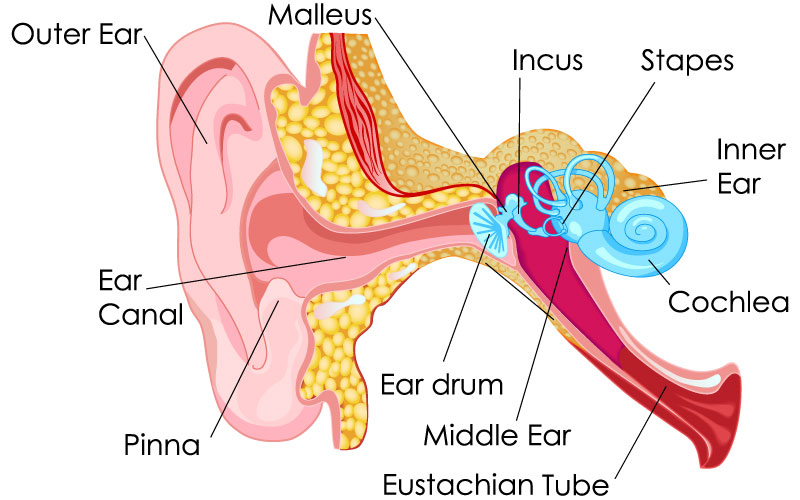“The problems of deafness are deeper and more complex, if not more important, than those of blindness. Deafness is a much worse misfortune. For it means the loss of the most vital stimulus—the sound of the voice that brings language, sets thoughts astir and keeps us in the intellectual company of man.” – Helen Keller
Facts about Adult Hearing Loss in the United States
- More men than women experience hearing loss and tinnitus.
- About 80-90% of people who suffer from tinnitus, also have hearing loss.
- Only 20% of hearing loss cases are medically treatable, meaning that treatment makes the hearing loss go away.
- Untreated hearing loss has been linked to dementia. Neural pathways to the auditory cortex atrophy without auditory stimulation.
- People with untreated hearing loss are more likely to lose their jobs in a competitive market because they are perceived to be less competent, and they are more prone to mistakes on the job.
- As the degree of hearing loss goes up, income goes down. People with moderate-to-severe hearing loss make about $14,000 less per year than normal hearing peers or workers with mild hearing loss.
- The incidence of permanent noise-induced hearing loss is increasing in younger people from listening to loud sound through earbuds connected to electronic devices like: smart phones, tablets, MP3 players, and video games. Sound is intensified in the tiny space of the ear canal as the listener turns up the volume up to overcome background noise. The sound has nowhere to go but through the delicate hearing mechanism.

UNTREATED HEARING LOSS BURDENS THE BRAIN
The ear is an amazing biological marvel. In an area the size of a pea, sound is converted from acoustic energy to neural signals that the brain can understand with great precision, instantaneously. Tiny hair cells wave inside the cochlea in frequency-specific patterns to precisely code loudness and pitch of complex signals. The ear and the brain work together to awaken understanding.
People with normal hearing don’t really have to think about hearing. Sound is delivered and interpreted effortlessly. However, when there is a breakdown in the ear’s ability to process sound accurately, the brain has to work overtime to assign accurate meaning to messages that have missing pieces. It is the brain’s job to keep you safe physically and emotionally. Part of being safe is not being embarrassed. That’s why people with hearing loss nod their heads even though they had no idea what they just agreed with. All day, every day, that guessing game is draining and requires energy that could have been spent on something more productive or pleasurable.
If you are struggling with the effects of untreated hearing loss, please contact us here or call us at (940) 387-3330.
Make an Appointment








